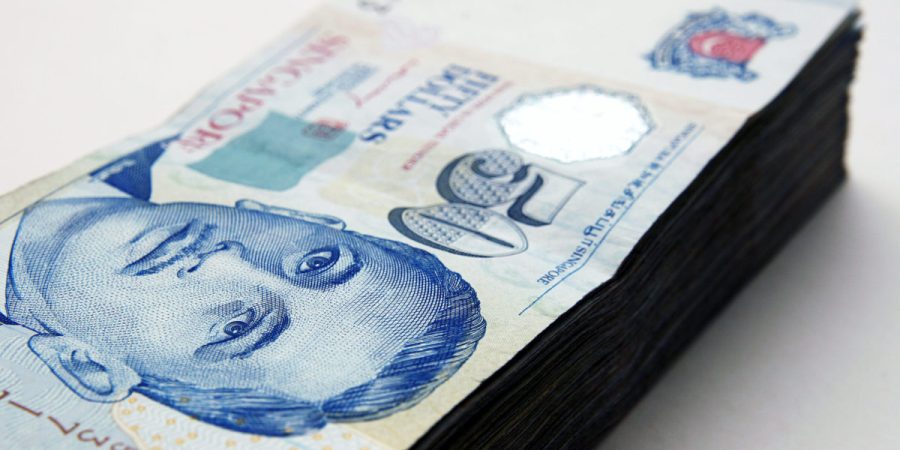A good director can make a great impact on your company. They can provide strategic advice when you’re feeling lost. They can offer business connections to help you expand. And if they’re someone prominent, they can lend your company an immediate boost in credibility. Of course, all these benefits will come at a price. If you want to attract competent individuals to join your Board of Directors, then you’ll need to compensate them fairly. This guide will explain the process of paying directors fees in Singapore.
Contents:
- Types of fees that directors can be paid
- Approval process for directors’ fees
- Disclosing director’s fees
- Taxes on director’s fees
- CPF contributions for director’s fees
- Golden parachutes for directors
1. Types of fees that directors can be paid:
After you’ve appointed directors to your Board, you are free to compensate them for the services they’ll provide to your company. If you’re trying to recruit a prominent individual to join your board of directors, this is a useful way to incentivize them, beyond simply offering them shares in your venture.
There are two ways that you can pay directors:
- Director fee
- Director salary
Paying Directors a fee:
Directors’ fees can include the following types of compensation:
- Cash
- Stock
- Allowances as far as they are charged to Singapore income tax (e.g. meal allowances, travel allowances)
- Other benefits (e.g. usage of company facilities, company cars, company club memberships, company discounts, company air miles, company private jets, etc.)
Common question: Can directors’ fees be paid monthly?
Yes, you can pay directors’ fees monthly. You just need to ensure that this is stated in the directors’ letter of appointment.
Paying Directors a salary:
You can also pay your director a regular salary. Do note that if you pay your director a salary, they would be considered a company employee, and thus be classified as an Executive Director. If you want to compensate someone who is a Non-Executive Director, or an Independent Director, a director’s salary will thus not be appropriate. This is because Non-Executive Directors and Independent Directors can’t be employed by the company. You would have to pay such individuals a directors’ fee instead.
2. Approval process for directors’ fees:
Directors’ fees: Pursuant to Section 169 (1), of Singapore’s Companies Act, you must pass an ordinary resolution to allow the company to pay directors’ fees. An ordinary resolution is simply a vote held in a shareholders’ meeting, where at least 50% of the shareholders must vote in favour of the resolution.
Directors’ salary: Unlike with directors’ fees, directors’ salaries don’t need to be approved via an ordinary resolution. You just need to pass a Board resolution (basically get your Board of Directors written consent) to pay the directors’ salary.
3. Disclosing directors’ fees
It is not explicitly required that you disclose to your shareholders the fees paid to your directors’. However, in the interest of corporate transparency, it is recommended that you make this disclosure in your Annual Report. This is in line with standards in Singapore (and internationally) on ensuring that shareholders have a view into the way the company compensates key office holders.
If you don’t disclose directors’ fees voluntarily, Singapore law allows shareholders to compel the company to disclose the amount of compensation paid to directors. This power is provided for under Section 164A (1) of the Companies Act.
You can be compelled to disclose directors’ fees if:
- At least 10% of the total members of the company issues you a written notice, or
- A member (or multiple members) with at least 5% of the total issued shares of the company issue you a written notice
If you receive such a notice, you must provide an audited statement declaring all fees paid to directors’. You have to provide this statement within 14 days of receiving the notice.
If you fail to do this, all company directors, and the company itself, will be subject to a fine of up to $10,000 each.
4. Paying taxes on directors’ fees
Tax rates will depend on your residency status in Singapore.
Resident director: Your directors’ fee is taxed at your personal income tax rate.
Here’s a table of tax rates in Singapore (accurate as of publication date):
| Chargeable income (SGD) | Income tax rate |
| First $20,000 Next $10,000 | 0% 2% |
| First $30,000 Next $10,000 | – 3.5% |
| First $40,000 Next $40,000 | – 7% |
| First $80,000 Next $40,000 | – 11.5% |
| First $120,000 Next $40,000 | – 15% |
| First $160,000 Next $40,000 | – 18% |
| First $200,000 Next $40,000 | – 19% |
| First $240,000 Next $10,000 | – 19.5% |
| First $280,000 Next $10,000 | – 20% |
| First $320,000 Above $320,000 | – 22% |
Source: IRAS
Non-resident director: Your directors’ fee is taxed at a flat rate of 22%.
Further clarification on residency status, for tax purposes:
Resident: You are considered a resident of Singapore if you are:
- A Singapore Citizen or PR, and live in Singapore
- A foreigner who is present in Singapore for at least 183 days in a year
Non-resident: You are considered a non-resident of Singapore if you are:
- A foreigner who is present in Singapore for less than 183 days in a year
5. CPF contributions for directors’ fees
If you pay directors’ fees: No CPF contributions are necessary.
If you pay directors’ salaries: You must contribute CPF, since this is a salary payment.
Here is a table of prevailing CPF contribution rates for directors (accurate as of original date of this article’s publication)
| Age of director | CPF contribution by employer |
| Up to 55 years old | 17% |
| 55 to 60 years old | 13% |
| 60 to 65 years old | 9% |
| Above 65 years old | 7.5% |
6. Golden parachutes for directors
You might have read of golden parachutes in the news. High-flying executives of large corporations getting handed severance packages worth tens, or even hundreds of millions of dollars, sending them off into a gilded sunset.
Case in point: In 2019, MacDonald’s ex-CEO, Steve Easterbrooks, received a USD $57 million golden parachute after being fired. Easterbrooks had been terminated after the MacDonald’s Board found evidence that the former CEO had engaged in relationships with several employees, which was forbidden by policy.
Now, unless you run a global corporation, you’re probably not going to be able to dole out $57 million dollar golden parachutes for yourself or your directors. However, even if you had the financial capacity to do so, there are important laws you have to abide by if you wish to pay golden parachutes to directors.
Under Section 168 (1) of the Companies Act, it is illegal to make payments to i) non-executive directors, and ii) independent directors, upon them leaving their positions, unless you receive consent from shareholders.
You can only make a golden parachute payment under the following conditions:
- You disclose details of the payments to shareholders
- You obtain shareholder approval in a general meeting prior to the payment being made
This is an important rule to prevent management from corrupting the Board of Directors. If Board members know that they can freely obtain golden parachutes upon leaving the Board, it might allow management to pervert the incentives of the Board members. For instance, management might require the Board’s approval for a significant increase in a management pay package. Management could dangle golden handshake incentives in order to convince the Board to vote for the increase in management pay. Forcing management to disclose details of such payments and to seek consent before any payments can be made reduces the chances of such perverse incentives being passed.
The only exception to this rule is for payments made to executive directors who leave office. You can pay executive directors (who are considered employees of the company) a golden handshake, without receiving shareholder approval. This is permissible only if:
- You disclose details of the payment upon or prior to the payment
- The golden handshake payment does not exceed total compensation paid to the director in the financial year before the director left office
Example: Michelle is COO of your company. She is also a member of your Board of Directors. Michelle retires, and you decide to honour her years of service with a golden handshake payment. In the financial year before Thomas’ retirement, her total compensation was $300,000. To comply with Singapore law, you decide to award her a golden handshake sum of $250,000. Also, you sent out a letter to inform your company’s shareholders that you were planning to do this.
Get Directors & Officers Liability Insurance from $42/month
It’s important for Directors to protect themselves against liability. Directors & Officers (D&O) Liability Insurance covers directors against lawsuits that target them personally.



